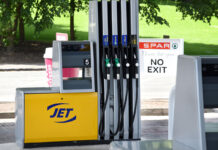MUP is here but what does it mean for retailers? Licensing expert Audrey Junner looks at potential pitfalls for stores

SCOTTISH retailers have had to cope with arguably more than their fair share of changes to licensing regulations over the years, but the implementation of minimum unit pricing (MUP) this month stands out as a big one.
To help stay on the right track when implementing the new pricing regime, Audrey Junner, licensing expert at Miller Samuel Hill Brown, has offered some advice that should clear up some confusion.
As it stands, the MUP for alcohol in Scotland is now 50p per unit of alcohol – although this could change in the future – and while that might be relatively straightforward to figure out for individual packs, Junner warned retailers not to get caught out by multipacks as the MUP applies to these formats too.
“MUP will mean that prices of many individual products have to be increased, usually this will mean that multipacks are similarly impacted.
“It is however possible that multipacks are already being sold above the MUP threshold so it’s assumed nothing needs to be done after 1 May,” she said.
To stay on the right side of the law, retailers must make sure to check that multipack boxes also meet the minimum pricing threshold, a trickier calculation – particularly in gift packs containing drinks of different pack sizes and ABV – but an essential one.
Price-marked packs is another area where retailers could be caught out. While stores may still have PMP stock priced below the MUP threshold, those products must now be sold in compliance with minimum pricing.
There is no transition period and, despite what some customers may believe, there is no obligation for retailers to sell an item at the price marked on pack.
“Operators should be reminded though that even where the price mark on a product is not covered there is no obligation in contract law to sell at the price shown,” said Junner.
“Customers may take issue with price increase – the best way to deal with this would be to ensure transparency with clearly marked new prices on stock and possibly a revised price list, and ensure staff are able to properly explain to customers the reason for the price increase.”
Another key consideration highlighted by Junner is the need for not just the retailer to have a good understanding of MUP, but also store staff, and the legal expert suggested it might be wise to do more than the mandatory minimum to avoid trouble down the line.
“Although there is no legal requirement to train current staff on the changes the indications are that there will be an expectation that all staff know how to calculate MUP,” said Junner.
“This may seem slightly unrealistic especially when very often prices are set centrally and local staff have zero control but from a diligence point of view a short training session which is documented could make all the difference at a review.
“It may also help staff to be clued up when challenged by potentially irate customers upset that their favourite products have shot up in price.”
In light of changes to pricing, it’s also possible retailers may wish to alter their alcohol offer. This raises some potential licensing pitfalls, although not always, as Junner explained:
“It’s possible to replace existing displays without any licence applications.
“However, any change to layout plan (which forms part of the premises licence) will require a variation application to be lodged with the relevant Licensing Board.”
And if all of that seems confusing, it’s arguably because it is, even for many legal professionals. For this reason, should retailers feel the need to seek out a bit of legal clarity, Junner recommends they call up a licensing specialist to ensure the best representation for their business.
[box style=”0″]
Alcohol must now be sold at a MUP of 50p per unit. This affects pricing as follows.
• A 700ml bottle of spirits at 37.5% ABV must cost at least £13.13.
• A 750ml bottle of wine at 12.5% ABV must cost at least £4.69.
• One 440ml can of 5% strength lager must cost at least £1.10.
• Four 440ml cans of 5% strength lager must cost at least at least £4.40.
• A case of 24 440ml cans of beer at 4% ABV must cost at least £21.12.
[/box]






















